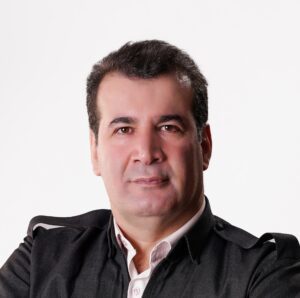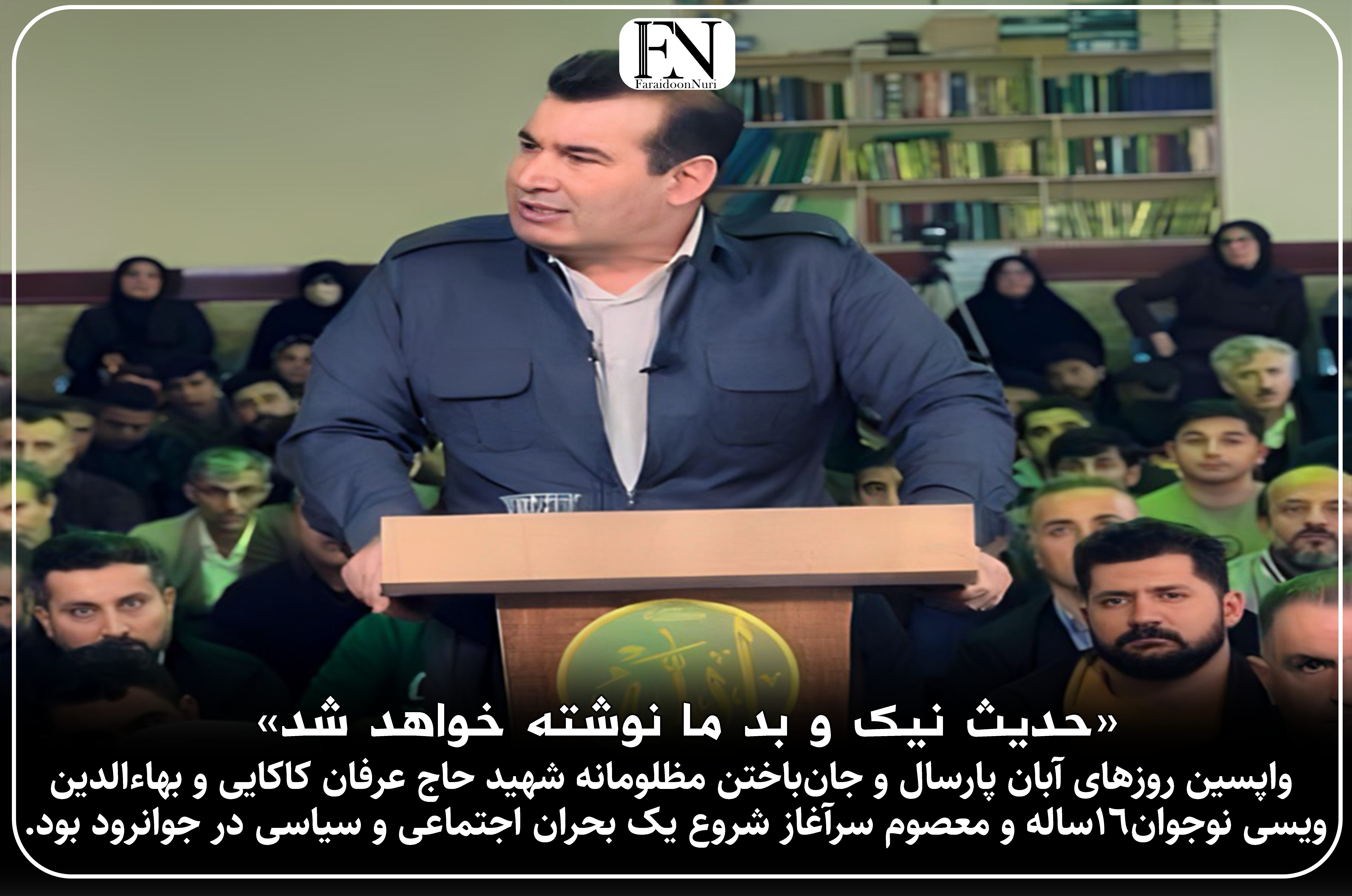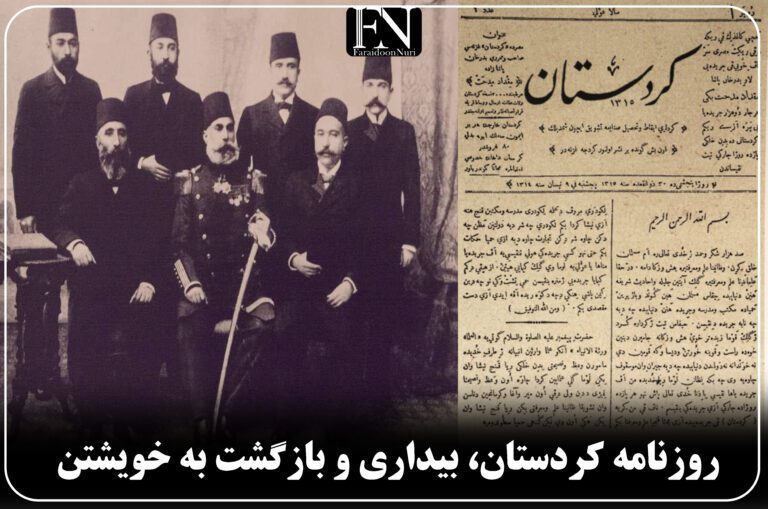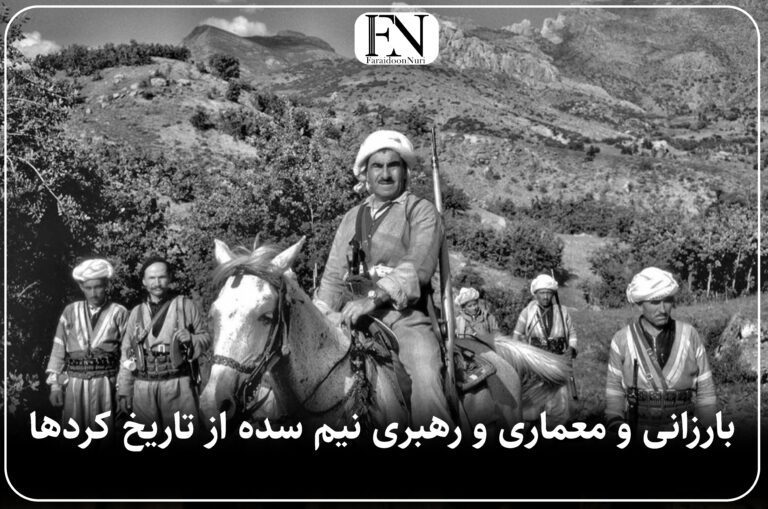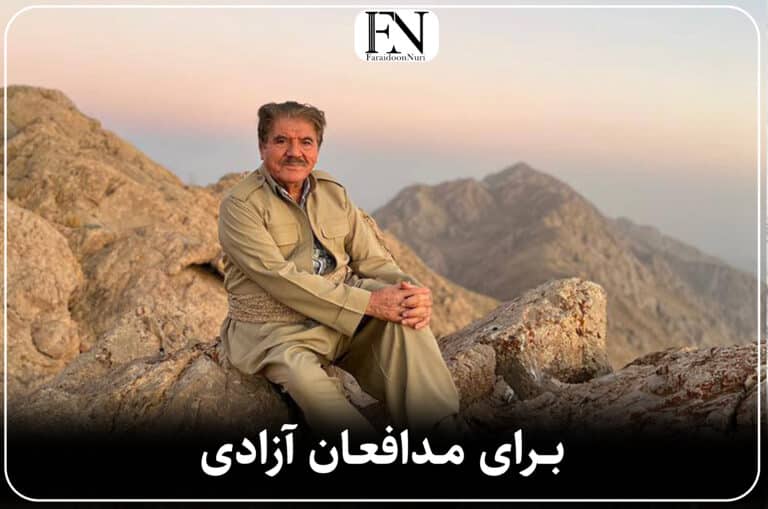My friendship with him dates back 50 years. His father was a very noble man who was respected by everyone, young and old, Shia and Sunni, and served as a role model at the university. Interestingly, every beautiful and admirable trait in the father was also found in the son.” This scholarly and valuable testimony by Professor Azartash Azarnoush is about the late Dr. Asad Sheikh-al-Islami.
Seyed Asad Sheikh-al-Islami was born in 1932 in Sanandaj and was the son of Seyed Mohammad and the grandson of Seyed Abdolaziz Sheikh-al-Islami of Kurdistan, from a well-known and learned family in Kurdistan, and the maternal grandson of Haji Sheikh Shokrollah Sanandaji, a notable figure in the Naqshbandi Sufi order. His existence represented a point of convergence between the path of Sufism and the Sharia in the Ardalani region.
Professor Asad Sheikh-al-Islami completed his primary and secondary education in Sanandaj. From a young age, at his scholarly father’s recommendation, he began his theological studies in his father’s study room, learning from renowned scholars such as Mulla Abdullah Kateb, Mulla Mahmoud Mofti Dashehi, and Professor Mostafa Zalmi. Soon after, his eagerness to learn modern sciences led him to the University of Tehran, where he pursued studies in Persian literature and theology (Islamic sciences). He says, “My entry into the Faculty of Literature in 1950 coincided with the rise of Dr. Mossadegh, and my graduation coincided with his departure.” During this period, he continued his studies in Islamic sciences under his father, Haji Seyed Mohammad Sheikh-al-Islami of Kurdistan, and ultimately received certification in issuing religious verdicts and teaching Islamic sciences from the distinguished scholar Mulla Mahmoud Mofti Dashehi. Then, in the mid-1950s, he entered the Faculty of Theology at the University of Tehran, receiving his Ph.D. in 1965 in Islamic jurisprudence. His doctoral dissertation, “Islamic Relations with Religious Minorities Throughout History,” reflects his humanistic and justice-oriented concerns from a young age.
From 1965, Asad Sheikh-al-Islami taught as an assistant professor at the Faculty of Theology at the University of Tehran and continued this blessed path until the last moments of his fruitful life. This persistence and academic rigor earned him the highest academic rank (full professor) and made him a source of inspiration and enduring services for the community and his fellow citizens, especially Shafi’i jurisprudence students and Kurdish clerics, despite the hardships he endured along this path. He said, “From 1969 to 1989, I was the only one teaching Shafi’i jurisprudence at the Faculty of Theology at the University of Tehran. Generally, there was little interest in the Faculty of Theology, and religious tendencies were weak. One of the reasons for this was the extensive activities of the Tudeh Party and their influence in the university.”
In 1974-1975, he went to the United States on a one-year sabbatical and pursued his interests at Harvard’s Faculty of Law and Theology, enhancing his academic prowess. His scholarly treatise “Comparative Study of Inheritance in Shafi’i Jurisprudence and American Civil Law” was the result of this academic retreat. Two years later, he traveled to England to attend the World Congress of Religions and the “Seminar on Divine Religions at Avro Lancaster University,” where he shone brightly. Again, in 1990, he traveled to the U.S. to participate in a seminar on inheritance laws in America and their comparison with Islamic inheritance laws, delivering his scholarly-research paper on this topic at Harvard’s Faculty of Law.
Writing dozens of scholarly and research articles and authoring several distinguished academic and university books in his field of expertise, such as “Theological Issues from the Perspective of Ash’ari and Mu’tazili Theologians,” “Marriage and Its End in Sunni Schools of Thought,” “Personal Status: Inheritance, Wills, and Trusteeship,” “A Brief Survey of Mu’tazili and Ash’ari Theological Thought,” and “Explanation of Poems by Seyed Abdolaziz (his grandfather) Sheikh-al-Islami of Kurdistan,” are part of the legacy of this esteemed scholar and accomplished professor.
The approval and establishment of two separate and independent university disciplines, Shafi’i and Hanafi jurisprudence, the former at the Faculty of Theology and Islamic Studies at the University of Tehran and the latter at Mashhad University, by the then Supreme Cultural Council, was also due to Asad Sheikh-al-Islami’s tireless and quiet efforts. This intelligent institution-building gave hundreds of distinguished young people interested in academic studies of these two significant Islamic schools the opportunity to pursue their talents and interests and provide enduring services and writings. Current distinguished professors of the Department of Theology and Shafi’i Jurisprudence at the University of Tehran, such as Dr. Jalalizadeh, Dr. Omidi, and Dr. Ziaei, are students and legacies of this remarkable and unassuming thinker of our contemporary history who, God willing, will continue his path.
The establishment and holding of exams to determine the academic level of Sunni clerics for granting equivalent degrees and holding related exams and awarding bachelor’s and master’s degrees to these individuals, and its undeniable impact on the academic and livelihood conditions of hundreds of Sunni clerics, is another enduring service in the illustrious career of this dedicated scholar, which, unfortunately, as far as this writer is aware, the beneficiaries have not shown appropriate and lasting appreciation for this selfless and honorable service by Professor Sheikh-al-Islami, which, of course, is not surprising in our harsh times.
The development of academic curricula related to the teaching of Sunni jurisprudence in the country’s universities is also a legacy of him and his knowledgeable colleagues and students. The virtue and scholarship of this enduring figure resulted from the teachings of esteemed professors, whose honorable names must be mentioned in this writing. According to him, he owed much to greats such as Professor Mostafa Zalmi, Seyed Mohammad Sheikh-al-Islami of Kurdistan (his father), the distinguished professor of the University of Tehran, the esteemed scholar Mulla Mahmoud Mofti of Kurdistan, Professor Abdulhamid Badi’ al-Zamani Mahi Sanandaji, Professor Badi’ al-Zaman Forouzanfar, Dr. Mohammad Mohammadi, the renowned professor and dean of the Faculty of Theology and Islamic Studies at the University of Tehran, Professor Pourdavoud, Professor Hassan Taghizadeh, Professor Mahmoud Shahabi, Professor Jalal al-Din Homaei, Dr. Abdolhossein Zarrinkoub, the skilled and capable professor Zabihollah Safa, and Professor Hassan Khatibi, all of whom were the bright and enduring stars in the firmament of Iran’s knowledge and culture.
This virtuous and accomplished professor passed away after decades of enduring service on Wednesday, January 1, 2020, at the age of 89 in Tehran. His body was transferred to his birthplace, Sanandaj, after a funeral at the University of Tehran, and he was laid to rest in Salavatabad in the embrace of his homeland.
Asad Sheikh-al-Islami was a rare gem of our times and possessed qualities that are the elixirs of our era: scholarly humility, tolerance and forbearance, perseverance and patience in the field of knowledge, good conduct, and inspiration to students, and avoidance of noise and fame-seeking. He truly lived and died nobly and is a testament to this enduring verse:
“Many have come and gone before us
And left their mark on the wall of life
And this melody of love will remain
As long as the wind and time endure.”
– Master Shafiei Kadkani
**Translation of the Second Article:**
The last days of November last year and the tragic martyrdom of Haj Erfan Kakayi and the innocent 16-year-old teenager Bahaddin Vaisi marked the beginning of a social and political crisis in Javanrud.
Unfortunately, the lack of tolerance, absence of clear measures, and wise decisions for crisis management by officials, coupled with the city’s public space being influenced by harmful emotions, blocked the way for hearing the rightful voices of real protesters and heeding the sincere recommendations of reformers, resulting in a bitter and bloody autumn in this city. Bereaved citizens and the city, mourning the death of several innocent children, including Erfan Kakayi and Bahaddin Vaisi, wore the shroud of mourning, and autumn took on the color of blood.
Thus, difficult and bitter days began, and a military and intimidating atmosphere prevailed over the city. Every aspect of people’s lives was affected by this unfavorable environment, and the news of these tragic events spread worldwide. Various media outlets, groups, and movements interpreted and analyzed these incidents in their preferred ways, and some London-based individuals and those nostalgic for the oppressive monarchy tried to exploit the people’s bloody sufferings for their gain.
The compassionate efforts of the elders and wise people of this land and region to end the crisis and control the violence were a clear and commendable aspect of these painful and sorrowful times. These courageous and compassionate steadfast efforts have been and will be a significant and beneficial factor in controlling the scope of crises and reducing the number of casualties and damages in general crises and natural and man-made disasters.
It is clear that any crisis, despite its many definite harms, may sometimes bring positive results and outcomes, which should be highlighted in the final analysis and evaluation of events.
The unity and solidarity of various segments of the people to end the militarized atmosphere of the city and put an end to the blatant and harmful violence, civil activities and sympathy with the victims’ families, adopting a humane strategy of civil and peaceful protest to end the prevailing
cycle of violence, are among the turning points and hopeful and proud behaviors of the dear and compassionate citizens of this region that prevented the continuation of the crisis and imposed further costs on the damaged social body, and by breaking the news blackout, echoed the loud voice of the citizens’ oppression across the country and the world.
It is evident that the absence and unjustifiable silence of some claimants whose credibility and position are owed to the support of this very nation is another bitter and painful reality of these events that will not be forgotten in history. These claimants themselves must answer for the reasons for their silence and absence, as humans are responsible for their positions and opinions and must also take responsibility for their silences.
January 4th, the anniversary of the martyrdom of Erfan Kakayi and Bahaddin Vaisi, is a significant milestone in the history of civil and peaceful activities of the people and citizens of Javanrud that will undoubtedly be remembered in the history of civil and peaceful activities of this region.
The spontaneous gathering of various segments of people in Hazrat Ibrahim Mosque, the compassionate and peace-seeking statement of the people, which, while explaining the prevailing situation in the city and analyzing the reasons for the tragic events, called for an end to the violence, cessation of night arrests, the release of detainees, an end to the security atmosphere in the city, the use of the consultation of trusted citizens to control the crisis, and the defense of the people’s oppression and condemnation of the killing of citizens, was one of the clear and transparent manifestations of civil and joint efforts of the people to manage the crisis, which fortunately, alongside other conscious efforts of the compassionate and trusted individuals, was effective.
As a citizen and a small member of society, feeling a human and social responsibility and aware of the obvious and hidden consequences of activism in that crisis environment, I read the people’s statement and also raised some of the problems and deficiencies in the decision-making process in my speech to express some of the pains.
Of course, my action, compared to the efforts and steadfastness of the compassionate individuals, was a small step and a human and moral duty carried out based on limited capacity and resources.
The apathetic opportunists who were celebrating the continuation of violence and killings without considering the people’s oppression, and riding the wave in this sad environment to sustain themselves, their livelihoods stained with the blood of the innocent, lost control and raged upon hearing this statement and speech, attacking me with various pretexts and unfounded accusations. No matter; because we and our like-minded individuals were thinking about saving the city and people and ending the violence in those difficult days, and we have no fear of the judgment of the irrational fire-starters of those battles; because we firmly believe that:
“The good and bad deeds of us will be written
Time has a record and a book.”
Today, a year after those bitter days, hoping for the correction of inappropriate practices, and with greetings to the pure souls of the innocent martyrs, I wish that under the shade of civil efforts of the people of Iran, the rule of law, accountability of officials, institutionalization of freedom, and the spread of justice and tolerance, such unfortunate events will never be repeated.
